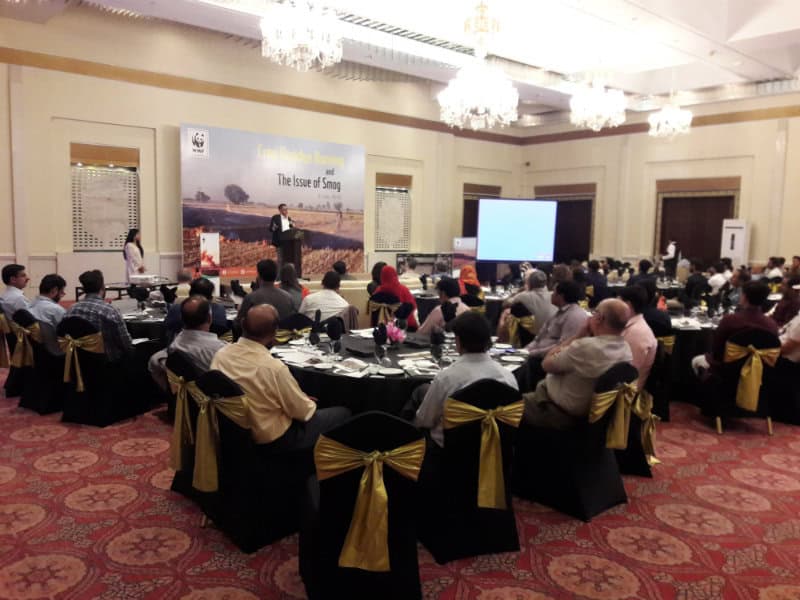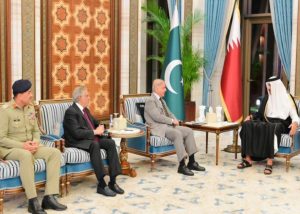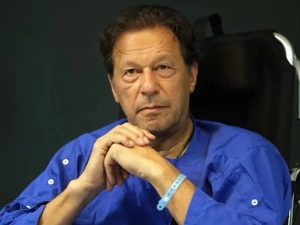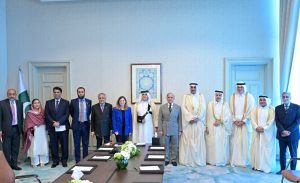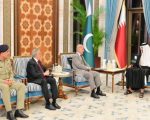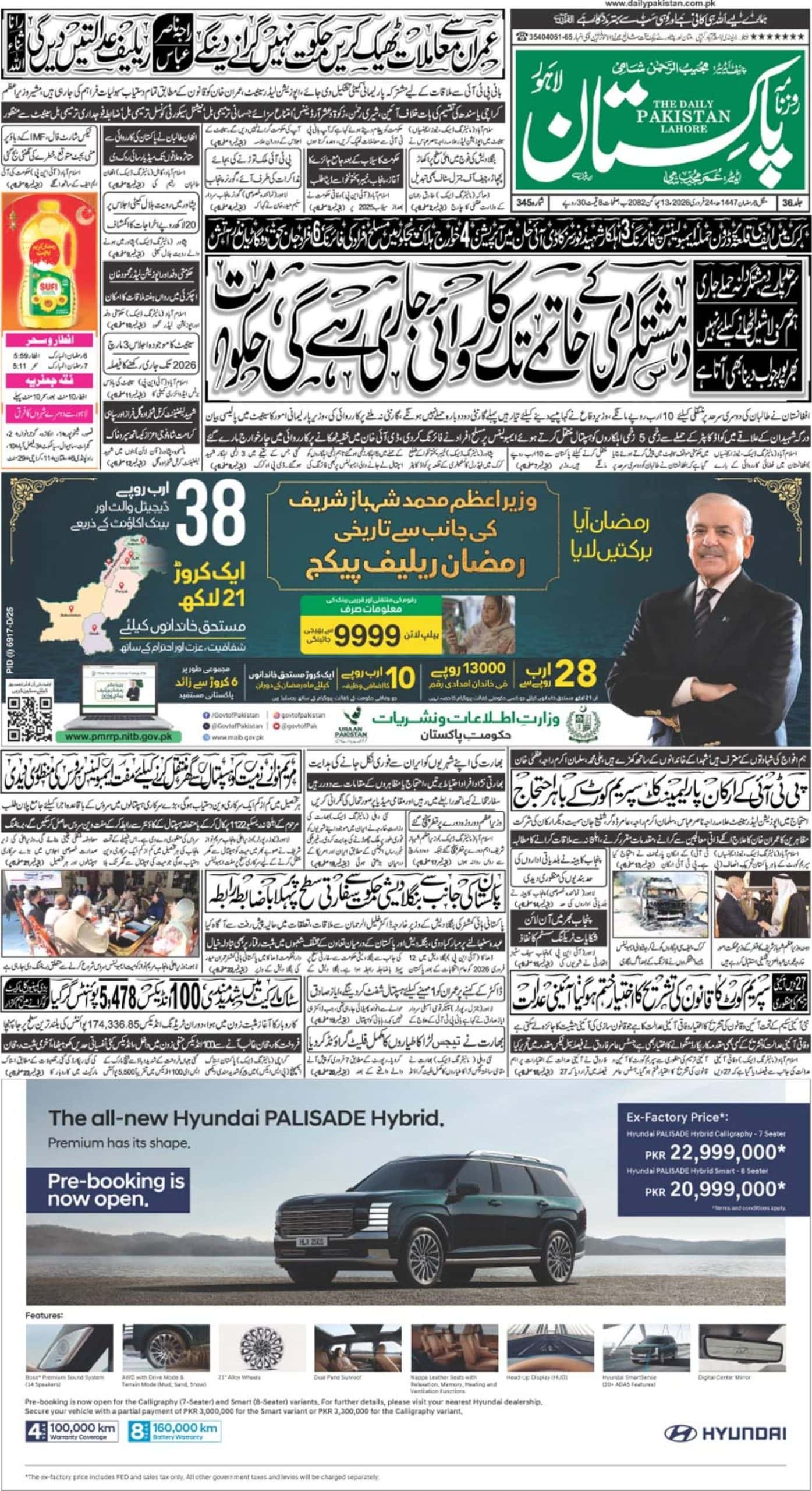LAHORE – Pakistani experts have said the burning of crop residue is a major source of contributing to smog formation in the South Asian country.
At a seminar on crop residue burning and the issue of smog organised by WWF-Pakistan at a local hotel in Lahore on Tuesday, they stressed for making collective efforts to tackle this issue. The experts also suggested that providing a suitable alternative to growers can minimize serious environmental and health hazards like smog.
The main purpose of the event was to establish a consensus between the relevant public and private sector on the roles, responsibilities, and actions that need to be taken to reduce discourage crop residue burning and by extension smog.
The half-day seminar was attended by corporate partners, journalists, academia, industry practitioners and the farming community from across Pakistan.
Hammad Naqi Khan, Director General, WWF-Pakistan, while welcoming the participants said: “Lahore is among the ten most polluted cities in the world in terms of air quality, according to air quality monitor AirVisual. Air pollution caused by traffic, industries, crop burning and burning of solid waste are major contributors of smog. Urban air pollution in Pakistan is among the world’s most severe, significantly damaging human health, quality of life, and impacting the economy and environment.”
Tanvir Jabar, Director General, Environment Protection Department, Government of Punjab, spoke about the sources of smog (brick kilns, industries, agriculture, and transportation sector), including the role of agriculture/crop residue burning in creating it.
Rafay Alam, a leading environmental lawyer stated that it is the need of the hour to control crop burning. This can be achieved by introducing long-term and multi-sectoral solutions that must outlive the political cycle.
He discussed the need for an air quality vision that unites policymakers. He stated “Punjab region, in general, is extremely prone to the hazards of smog. While the transportation and energy sector qualify as the leading contributors of smog, crop residue burning also contributes to this cause.”
Dr Ehsan Ali, Director Punjab BioEnergy Institute, presented a feasibility analysis of the alternative use of crop residue, such as rice husk, in the production of energy, According to him bio-energy is of utmost importance for the environment as it is a step towards materialising the intended nationally determined contribution (INDC) that Pakistan has submitted in accordance with the Paris agreement.
Dr Anjum Ali Buttar, DG Agriculture Extension gave a detailed analysis of the direct and indirect losses due to the practice of crop residue burning. He also took the opportunity to elaborate upon the range of initiatives that Agriculture Extension had taken in order to resolve this pervasive issue as well as the efficient management of crop stubble.
Yasir Idrees, Operational Manager, Punjab Bio-Energy Company discussed the prospects of developing a sustainable supply chain of crop residue. Ali Raza, a food technologist, also spoke about the plausible value addition initiatives that can be taken for rice residue.
Dr Masood Arshad, Director Water, Climate and Energy, WWF-Pakistan, concluded the event and thanked speakers and participants in developing concrete steps for future actions to control crop residue burning and smog.

